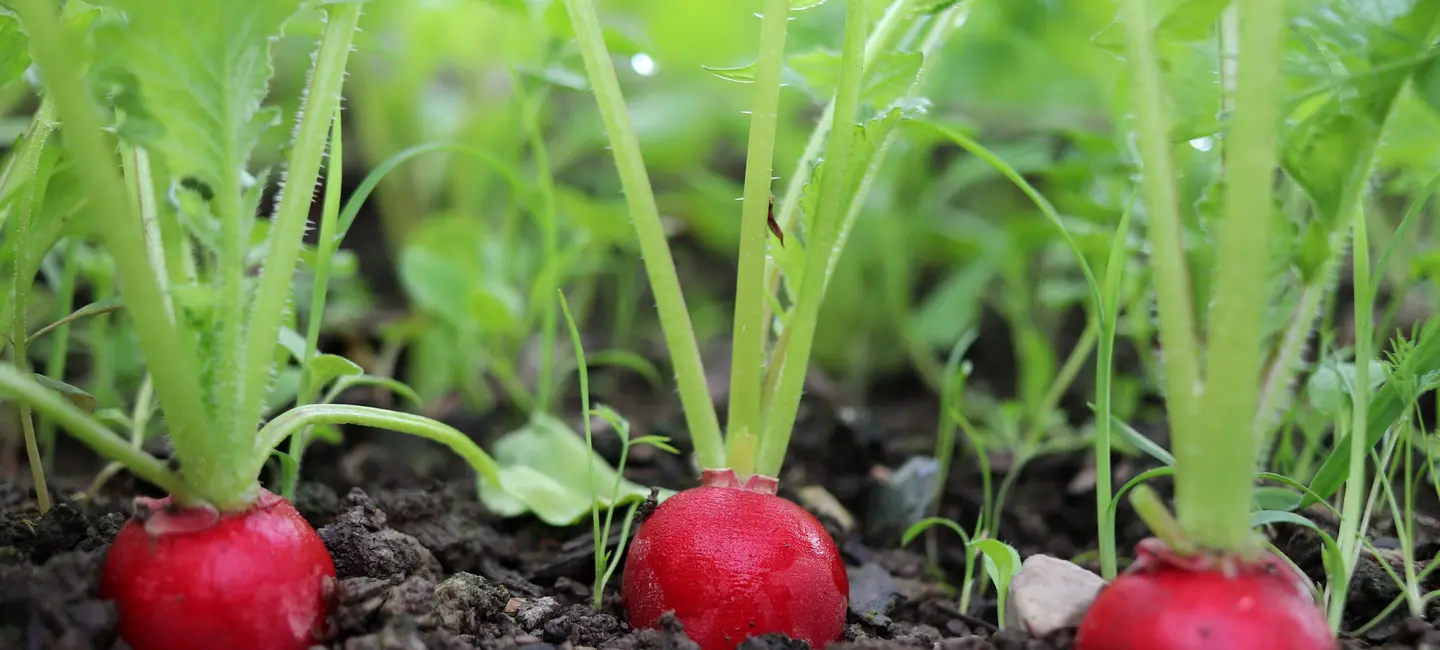
Radish (Raphanus sativus) is a plant native to Japan and China. Its root and leaves are commonly eaten. Its root, leaves, and seeds are used as medicine.
Radish root contains chemicals that might help with digestion. It might also help lower blood sugar and blood pressure.
People use radish for disorders affecting bile flow in the liver, diabetes, and many other conditions, but there is no good scientific evidence to support these uses.
Is It Effective?
There is interest in using radish for a number of purposes, but there isn't enough reliable information to say whether it might be helpful.
Is it Safe?
When taken by mouth: Radish is commonly consumed in foods. It is likely safe when used in moderate amounts as medicine. But taking large amounts of radish can irritate the stomach.
Special Precautions & Warnings:
Pregnancy and breast-feeding: Radish is commonly consumed in foods. But there isn't enough reliable information to know if radish is safe to use in larger amounts as medicine while pregnant or breastfeeding. Stay on the safe side and stick to food amounts.
Gallstones: Radish increases bile flow. This might increase the risk of sudden pain due to a gallstone blocking the bile duct. Use cautiously if you have gallstones.
Surgery: Large amounts of radish might lower blood sugar levels. This might interfere with blood sugar control during and after surgery. Stop using radish at least 2 weeks before a scheduled surgery.
Medications for diabetes (Antidiabetes drugs)
Interaction Rating=Moderate Be cautious with this combination.
Radish might lower blood sugar levels. Taking large amounts of radish along with diabetes medications might cause blood sugar to drop too low. Monitor your blood sugar closely.
Herbs and supplements that might lower blood sugar: Radish might lower blood sugar. Taking large amounts of radish with other supplements with similar effects might lower blood sugar too much. Examples of supplements with this effect include aloe, bitter melon, cassia cinnamon, chromium, and prickly pear cactus.
There are no known interactions with foods.
Radish is commonly consumed in foods. As medicine, there isn't enough reliable information to know what an appropriate dose of radish might be. Keep in mind that natural products are not always necessarily safe and dosages can be important. Be sure to follow relevant directions on product labels and consult a healthcare professional before using.
Black Radish, Black Spanish Radish, Chinese Radish, Daikon Radish, Garden Radish, Japanese Radis, Lai Fu Zhi, Long Black Spanish Radish, Moolak, Mooli Beej, Oriental Radish, Petit Radis, Rábano, Radis, Radis Espagnol, Radis Noir, Radis Noir Espagnol, Radis Rouge, Raphani Sativi Radix, Raphanus sativus, Red Radish, Round Black Spanish Radish, Small Radish, Spanish Radish, Spanish Black Radish, Turnip Radish.
Information on this website is for informational use only and is not intended to replace professional medical advice, diagnosis, or treatment. While evidence-based, it is not guaranteed to be error-free and is not intended to meet any particular user’s needs or requirements or to cover all possible uses, safety concerns, interactions, outcomes, or adverse effects. Always check with your doctor or other medical professional before making healthcare decisions (including taking any medication) and do not delay or disregard seeking medical advice or treatment based on any information displayed on this website.
© TRC Healthcare 2024. All rights reserved. Use and/or distribution is permitted only pursuant to a valid license or other permission from TRC Healthcare.
